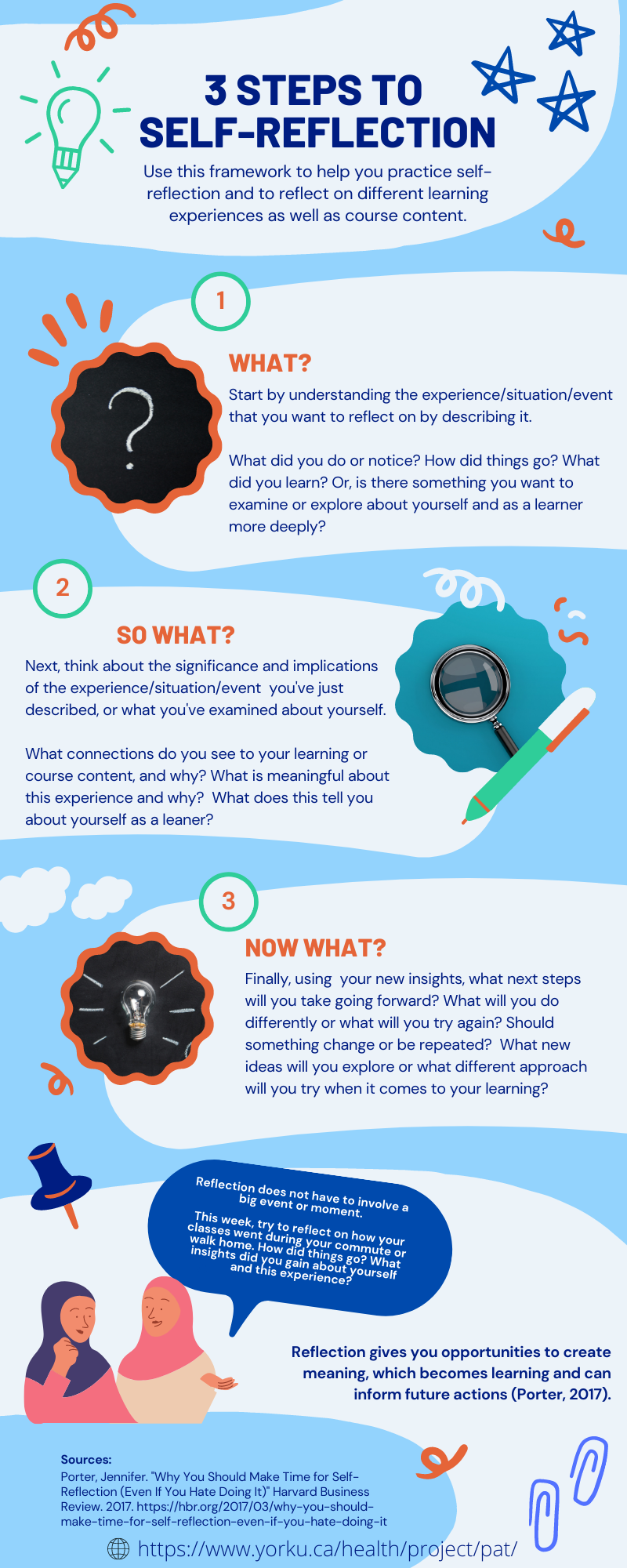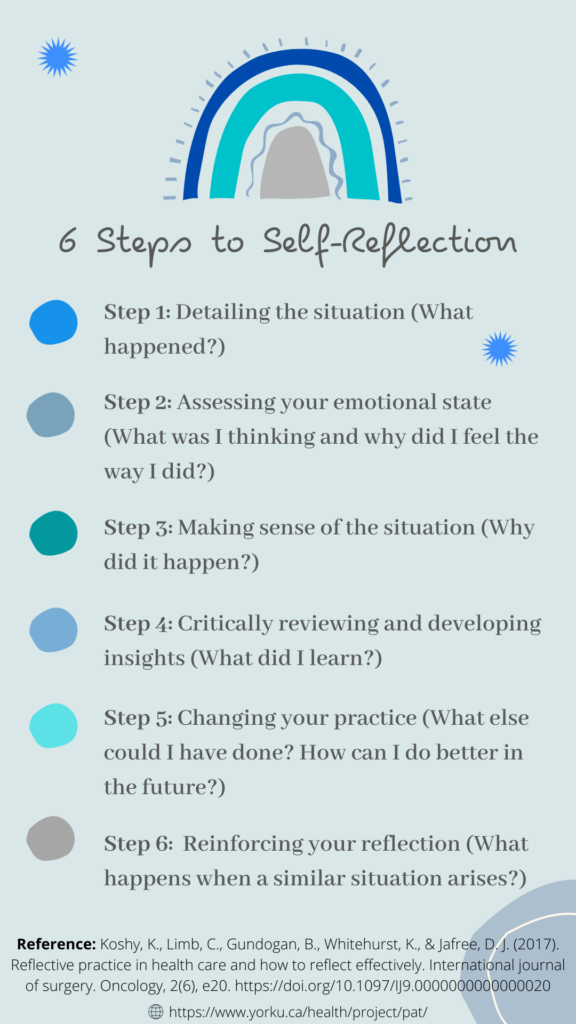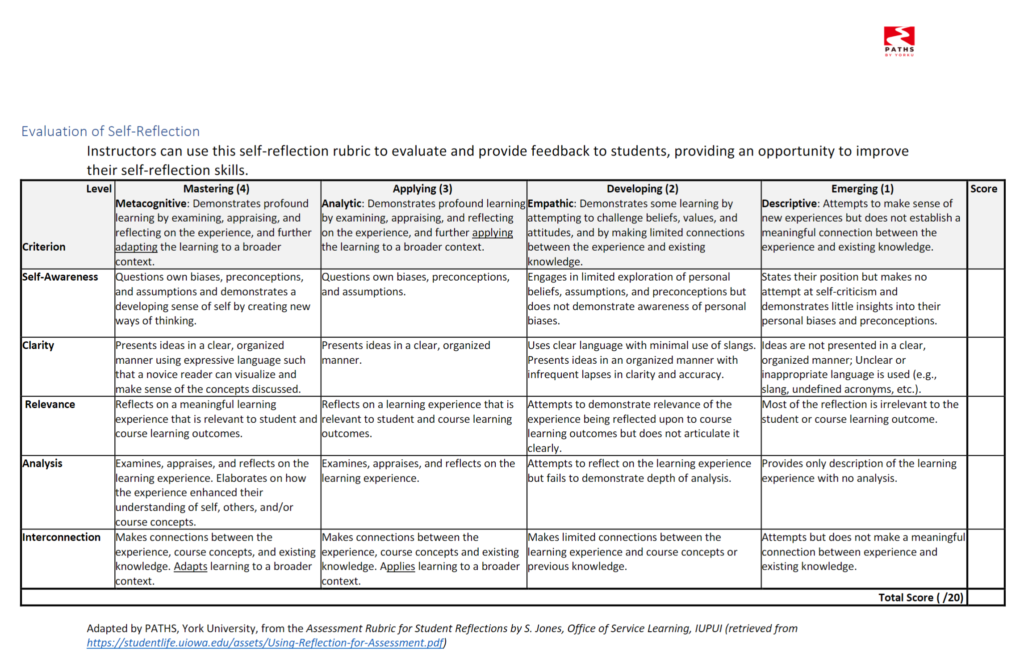About this attribute
Self-reflection involves engaging in an examination of oneself to gain transformative insights to apply to future experiences.
Where to start? Follow this pathway for a complete learning experience or pick the scenario that applies to your course. Each section includes:
- A description of the learning object and associated learning outcomes
- Estimated activity time
- Instructor notes and helpful suggestions
- Options to download or embed resources
- Video transcripts and accessible document versions
For examples of how to organize content in eClass, visit our demo site.
New to H5P? Learn more about using and adapting H5Ps in eClass here.
Expand to explore

Self-reflection is a powerful tool
Self-reflection helps students make important insights and improve performance and decision-making. Opportunities for self-reflection enable students to build awareness of their own learning skills and develop their abilities to analyze, think critically, communicate, and form connections between course content and real-world contexts.
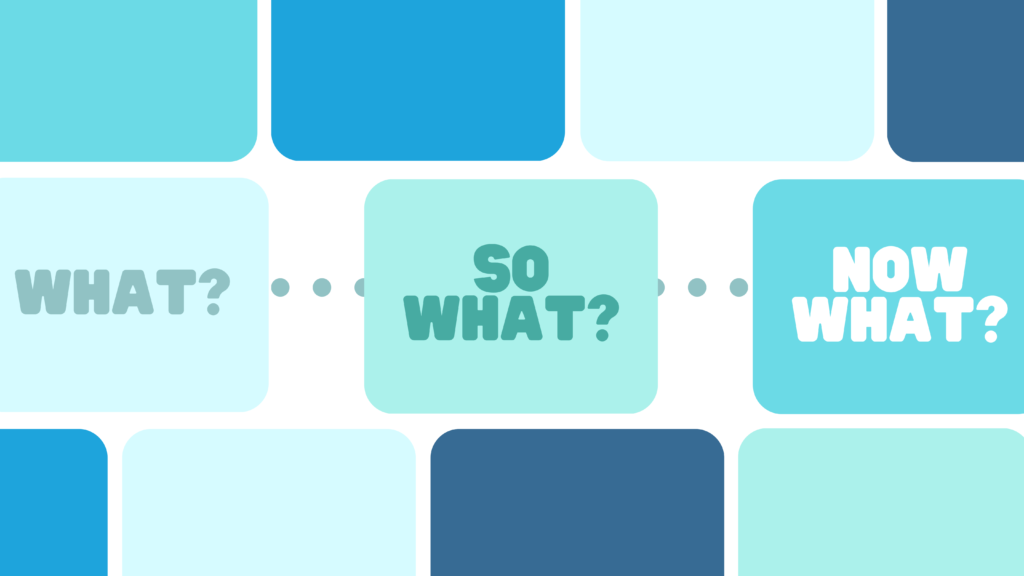
The benefits of self-reflection
To set students up for success and help them to become aware of their reflective processes, providing students with opportunities to implement self-reflection as a daily practice will help students intentionally incorporate and use self-reflection to support their learning.

Self-reflection frameworks are tools
Self-reflection frameworks can help students develop their skills and learn how to meaningfully practice self-reflection in class and in their daily lives. As students develop this skill, they can approach self-reflection assignments and activities with improved confidence.
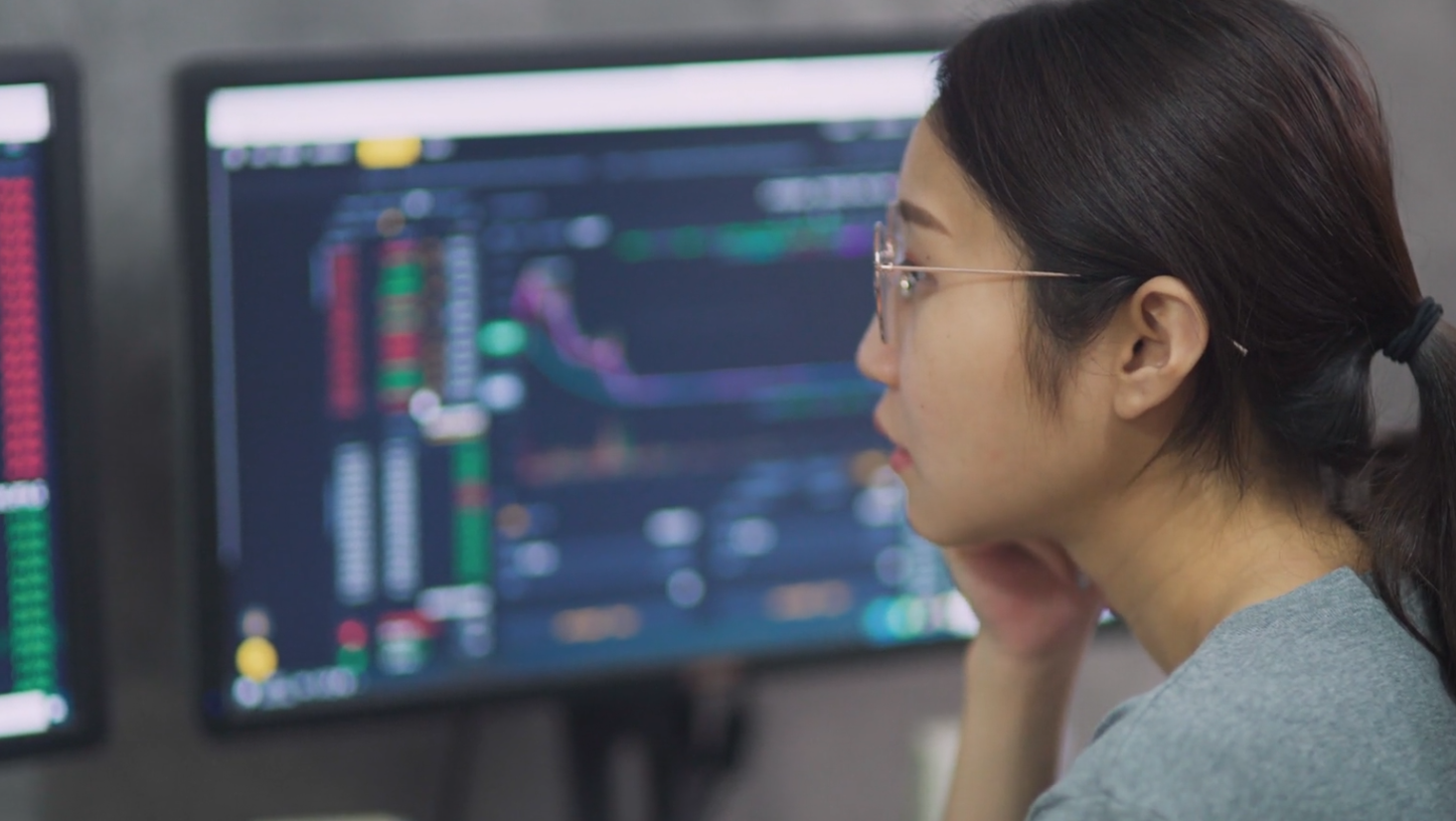
Evaluation tools help students gain valuable insights
Reflecting will look different for each student but assessing the quality of a student's self-reflection can provide beneficial information they can use to further develop this skill.


